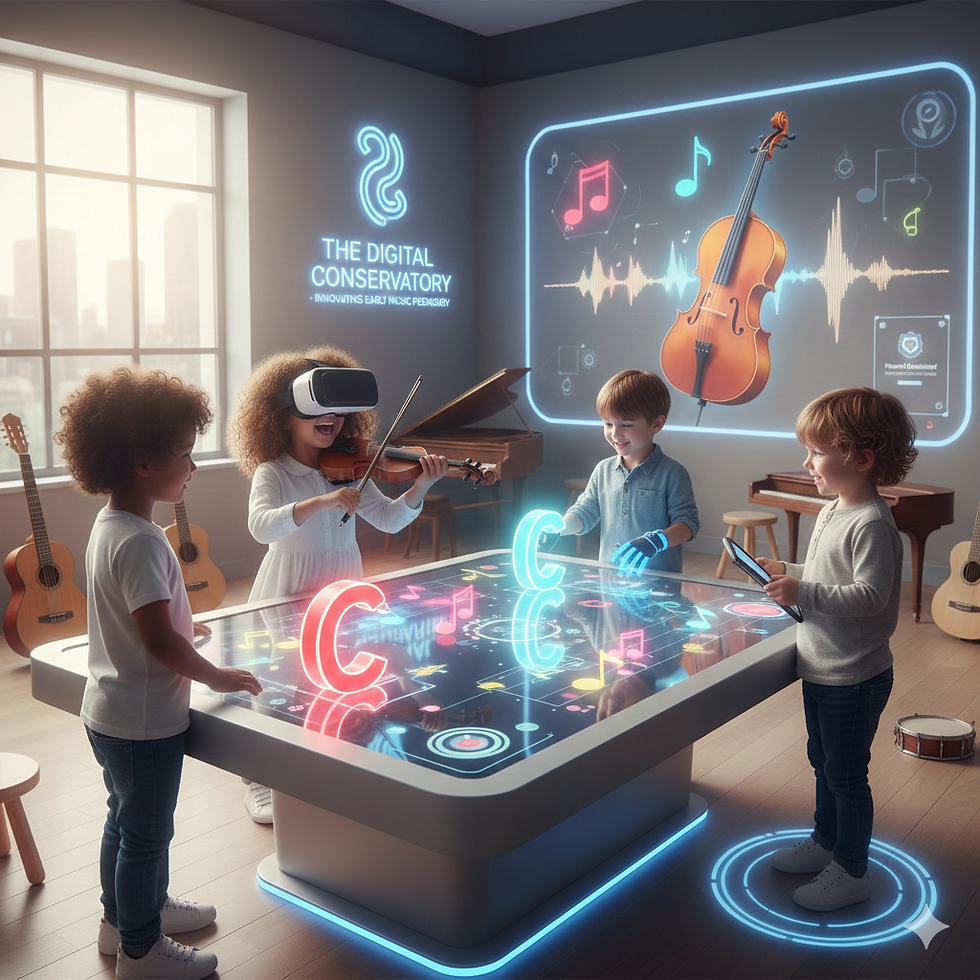"How Modern Band and Little Kids Rock Are Making Music Lessons Relevant and Fun for a New Generation"
- Sep 17, 2025
- 3 min read
For generations, learning music meant one thing: classical training. It was a world of metronomes, sheet music, and the solitary pursuit of perfection on an instrument like the piano or violin. While this traditional path has produced countless virtuosos, it often left many students feeling disconnected from the music they actually listened to—the pop anthems on the radio, the guitar solos in rock classics, and the beats that define their generation.

But a quiet revolution is underway in music classrooms, and it's built on a simple, powerful idea: what if we taught students to play the music they love? This is the core of the Modern Band movement. It's an approach that swaps sonatas for songwriting, solo practice for band collaboration, and classical theory for real-world musical skills. And according to a recent qualitative study on music teacher perceptions of programs like Little Kids Rock, it's not just a passing trend—it's a transformative way to learn.
What the Teachers Are Saying: A New Paradigm for Learning
The study's findings are a powerful endorsement of the Modern Band approach. Teachers overwhelmingly reported that shifting the curriculum to include popular genres like rock, pop, hip-hop, and R&B had an immediate and profound effect on their students. The most significant outcomes weren't just about musical skill; they were about engagement, collaboration, and personal growth.
Student Engagement Soars: When students are given the chance to learn their favorite songs, practice becomes a passion, not a chore. Teachers observed a massive increase in student motivation and a decrease in absenteeism. The lessons became a place where students could be themselves, a place where their musical tastes were not just tolerated, but celebrated.
From Soloist to Collaborator: Traditional music lessons often focus on individual achievement. Modern Band, by its very nature, is a team sport. Students learn to play in a band—to listen to the bass player, to lock in with the drummer, and to support the vocalist. This collaborative environment fosters crucial life skills, from communication and teamwork to problem-solving and mutual respect. It's a powerful way to build a community within the classroom.
Unlocking Creativity and Confidence: In a Modern Band class, students aren't just memorizing notes; they're creating. They learn to improvise, to write their own chord progressions, and to craft original lyrics. This creative freedom builds immense self-confidence. The study found that students who may have struggled with traditional music theory found a new voice and a new sense of purpose when given the chance to express themselves through an instrument they genuinely connected with.
Making Music Education Relevant: The study confirmed that by teaching culturally relevant music, educators can make music education a vital part of a student's life. The skills learned in Modern Band—like ear training and understanding song structure—are the same skills needed to be a successful musician in any genre. But by teaching them through the lens of music that resonates with today's youth, the lessons feel more meaningful and have a lasting impact.
The Little Kids Rock Effect: Democratizing Music
A standout finding from the study was the immense impact of the Little Kids Rock program. This organization provides instruments and a comprehensive curriculum to schools, often in underserved communities, making a Modern Band program accessible to students who might otherwise never have the chance to learn an instrument. Teachers reported that for these students, the program was about more than music; it was about finding an outlet for self-expression, building friendships, and discovering a passion that could last a lifetime. Little Kids Rock proves that every student, regardless of their background, deserves the opportunity to feel the joy of playing music.
The Future of Learning is In Your Hands
This research paints a clear picture: music education is no longer a one-size-fits-all model. The future is vibrant, collaborative, and, most importantly, centered on you—the student. If you’re a budding musician or thinking about starting, seek out a program that teaches the music you’re passionate about. The study shows that playing in a band isn't just a fun elective; it's a powerful way to learn real musical skills, build confidence, and become part of a community.
What kind of music would you want to learn in a Modern Band class?



Comments